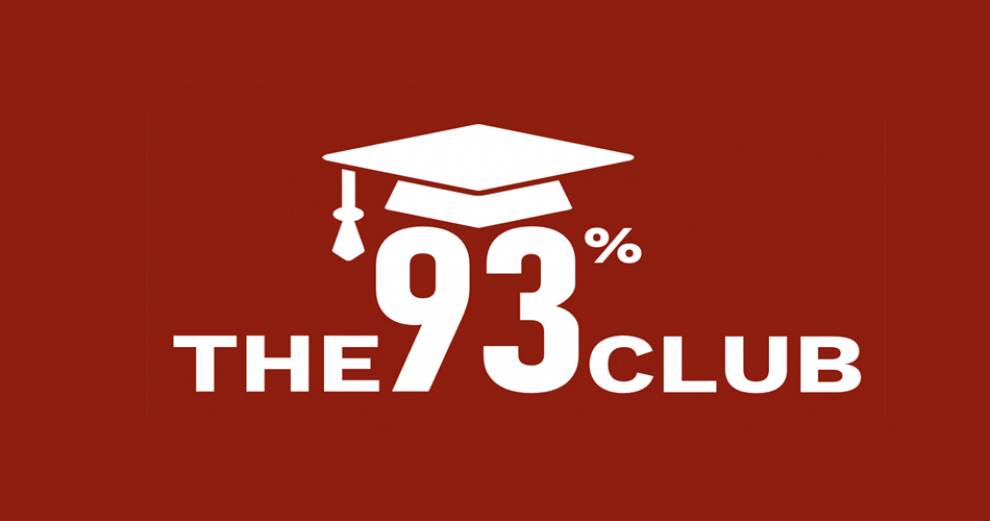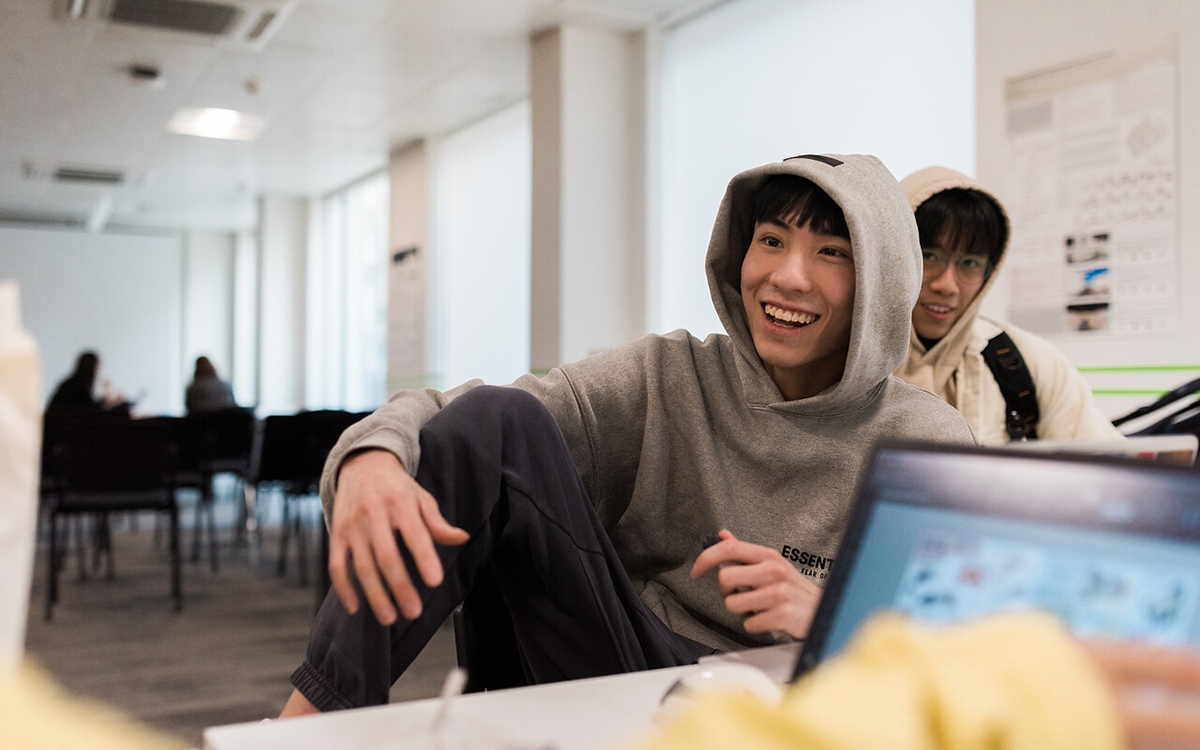93% - The working-class student club tackling social mobility in Higher Education

The 93% Club was founded in 2016 to promote social mobility and inclusivity in higher education. Since its inception, the social enterprise network has developed professional development workshops, policy initiatives, and outreach activities that have supported over 10,000 students across UK higher education.
We sat down with 93% Marketing and Communications Director and UCL MA student, Finley Wright, to talk about the 93% Club at UCL, its driving principles, long-term goals, and the #StateSchoolProud campaign.
Hi Fin, great to meet you – can you start by telling us a bit about yourself?
I’m 22 and originally from Leigh on Sea in Essex. I was educated at two state comprehensives - Belfairs Academy to GCSE, and St. Bernard's High School post-16. I’m a post-grad studying an MSc in International Planning at UCL's Bartlett School of Planning, having completed my undergraduate at QMUL in Politics and International Relations.
What is the 93% Club? Is it a support network, a grassroots community or a knowledge exchange?
The 93% Club initially started as a society at the University of Bristol in 2016. It was designed to champion the needs of those from state educated backgrounds, produce a community, and provide a sense of belonging. Founded with the same principles at UCL, the 93% Club provides a community, but now as part of a larger network of clubs spread across nearly 50 UK universities, as well as more practical support.
We also offer upskilling sessions such as CV writing, interview simulations, discussions with industry professionals, and learning to network; wellness sessions on how to overcome imposter syndrome and improve confidence; and panels and seminars with senior industry leaders aimed at demystifying certain professions and improving access. We also have a podcast and blog, as well as a policy function, research and advocacy arm.
How did you first find out about the 93% Club, and what made you want to get involved?
I was introduced to Sophie Pender before I started at UCL and seeing her passion for social mobility really energised me to establish a branch here. I established the club at UCL with my Co-President in May 2020. However, I decided to take a small step back when I joined the newly formed 93% Foundation’s Board of Directors.
I was educated at comprehensive schools throughout my school career, and in hindsight, I found it interesting how many students, despite being very bright and talented, did not think university was the place for them. I founded the Club almost as a favour to my younger self, who would not have imagined that I would study a Master’s at one of the world’s foremost planning schools.
“We believe that there is a damaging ‘poverty of expectation’ in the UK, where state educated students are presumed to be unable to fill jobs in boardrooms and the corridors of power - Finley Wright, Bartlett School of Planning MA & 93% Foundation Marketing and Communications Director
How widespread is elitism in the workplace, and how much of a barrier is it for students not coming from a privileged background?
We recently started our #StateSchoolProud campaign in response to this very issue: we believe that there is a damaging ‘poverty of expectation’ in the UK, where state educated students are presumed to be unable to fill jobs in boardrooms and the corridors of power. That’s not to say that everyone from state educated backgrounds aspire to fill those positions, but the problem is that the same types of people, with the same types of education and background, are presumed to naturally rise to the top.
I think state schools lack resources to provide the material, social, and cultural capital to enable state educated students to become socially mobile and compete on an equal playing field with their privately educated peers. Our strategy of addressing the gaps, we hope, will remedy this unequal playing field.
What are the key messages and primary aims of the 93% Club?
We aim to connect, upskill, and empower. By connecting students together, we're able to pool resources and share opportunity. Our upskilling programmes are designed to build confidence and enable students to confidently access competitive job sectors. Our empower element is an end goal: students should feel as though the world is open to them and not precluded from certain professions or reaching their personal goals.
What kind of work does the 93% Club do?
The 93% Foundation, and its constituent clubs, is based on a pillar strategy where we work to address unequal material, social, and cultural capitals - I will qualify that we mean a workplace culture - that cause social immobility. Materially we are launching a bursary programme designed to provide students with the funds required to get along and compete. In providing social capital, we aim to produce networks which can be leveraged to promote collective upskilling and industry insights. By cultural capital - we aim to ensure our students are not adversely affected by the social cues, in interviews for instance, that put them on the back foot. We are ultimately seeking to adjust workplace culture away from a model that caters to those from privately educated backgrounds - but that’s a long-term goal.

Have there been any objections to the 93% Club?
Back when the society was founded in 2016, there was a lot of pushback from privately educated people who saw the society as divisive. However, since our growth, people understand that we do not call for the abolition of private schools, nor do we chastise our privately educated friends and peers. Our size today also proves that this issue is not concentrated in a single university, but across the UK. We have also received an enormous amount of support from those who ‘wished the 93% Club existed when they were at university’. As we have grown, so has our support, and opposition has been slowly eroding as the validity of our argument has become clearer.
How big is the 93% Club at the moment? Where are the clubs based and where are you expanding to?
The 93% Club has 47 branches across the UK, over 300 committee members, and nearing 10,000 supporters at each university. Our clubs are spread far and wide across the UK, from here at UCL, to Lancaster, Aberdeen, and Exeter. We have found that regionally we operate very closely - at UCL we work very closely with our sister clubs at KCL (King s College London), QMUL, RHUL, City, Southbank, UWL and Birkbeck. As a charity we are allowed to operate in the UK and Ireland - and we are currently in the process of establishing our first Irish branch. So onwards and upwards I would say!
What are the 93% Club's future plans?
I will be leaving the UCL branch when I graduate in September 2021, but I will be leaving it in capable hands. At the Foundation we are currently developing our strategy for the next year and when the #StateSchoolProud campaign ends, we will be holding our first summit, which will be a national event run by the foundation. It will act as an effective AGM and training session for all our clubs and introduce our new industry advisory board which will be formed of senior professionals from a range of sectors. The summit will also usher in our Milkround training sessions which will prepare students for the application season that typically runs Sept-Dec!
We're also in consultation with our sponsors and financial advisors over launching a bursary sometime in the future, which will be available for state educated students nationwide who are members of a 93% club at either university level, or foundation-level. However, this time last year we could not have imagined where we are today - so who knows where we will be heading.
For more information on the 93% Club go to www.93percent.club. You can follow the UCL branch on Instagram @93clubucl.
 Close
Close


